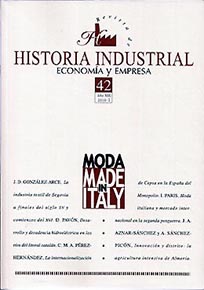The Internationalization of Cespa in Monopoly Spain
DOI:
https://doi.org/10.1344/rhi.v19i42.20500Keywords:
Cepsa, Internationalization, Oil Industry, Canary IslandsAbstract
The aim of this article is to analyze the international strategy of Cespa –Compañía Española de Petróleos. Founded in 1929, this privately-owned Spanish company was characterized by its rapid incorporation into international markets. Cespa soon invested in foreign oil assets but its internatio¬nal projection remained defined by the construction of its first oil refinery in the Canary Islands. This area offered a free port zone with a strategic location with globally relevant oil transit. The storage of fuel, exportation, international contracts, and the opening of affiliate companies abroad were the means of forming Cespa as an international company. We will show how the existence of a global technological market within the petroleum sector provided for international competitiveness, but also that, at a later stage, the company’s international experience gave it a competitive advantatge in terms commercial, technological, and management capital.Downloads
Downloads
Published
How to Cite
Issue
Section
License
The author assigns all rights to the publisher. Creative Commons
The author who publishes in this journal agrees to the following terms:
- The author assigns all intellectual property rights exclusively to the publisher for the entire duration of the applicable intellectual property rights.
- The publisher will distribute the texts under the Creative Commons Attribution License, which allows others to share the work, provided that they acknowledge the authorship, its initial publication in this journal, and the conditions of the license.





